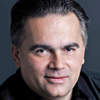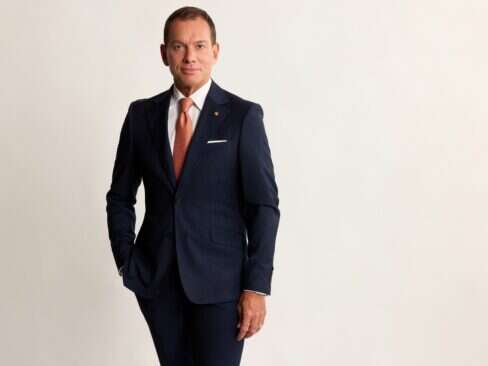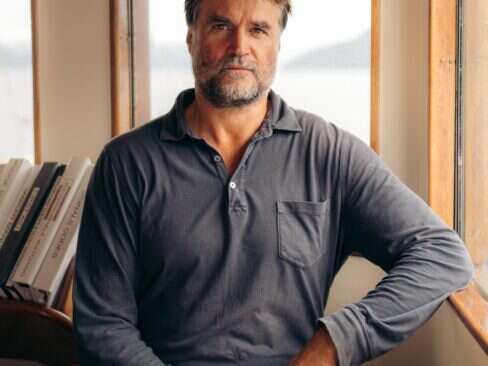
President and CEO, BNB Concept andFounder of Confrérie Horlogère
If you remember the ads from various computer companies that proclaimed “Intel Inside,” then you have a quick understanding of BNB’s role in the watch industry as a designer of movements for leading watch companies, and why the Duillier-based company has enjoyed phenomenal growth as part of the luxury watch boom. Though the Swiss watch industry is now in flux, BNB is still growing and expanding, if not without some dramatic changes. Recently Elite Traveler Editor-in-Chief, Douglas Gollan, traveled to Chéserex, about 20 miles outside of Geneva, where he had lunch with owner, founder and CEO Mathias Buttet. The discussion ranged from management philosophy, luck, working with his mother-in-law and the launch of a new company, Confrérie Horlogère, that will bring Buttet out of the shadows and into the limelight.
ET: Tell us a bit about your background.
Mathias Buttet: I was a micro-technique engineer, then worked for Vacheron Constantin and Franck Muller. I founded BNB in 2004 and we are a maker of movements for other watchmakers. So far our growth on the top line has been about 200 percent per year. We have over 30 customers, and the ones I am allowed to name are Hermès, Hublot, Concord, Romain Jerome, HD3, DeWitt, Bell & Ross and Franc Vila.
We started in the basement of my house. There is a huge open fireplace to make fondue and we kept my wine down there. There were four of us. We finally got offices because we ran out of wine and today we have 182 people in the company.
ET: What is Confrérie Horlogère and why are you starting in such a difficult time?
Mathias Buttet: We actually started in April 2008. In BNB we have over 100 watchmakers and their average age is 27. In most companies that make movements, it is an assembly line. At BNB each watchmaker makes everything A to Z, which is unusual.
That’s the strength, but it was also a disadvantage. Other companies were stealing my people, so I was watching the Swiss version of American Idol, and I got the idea to give the people the opportunity to develop their own brand—except Simon Cowell isn’t going to eliminate somebody each week.
Confrérie Horlogère is a brand incubator. And like baby chicks in an incubator, some will grow and thrive, and some will die. But the ones I choose will be able to make a watch that will have their name on it “by Confrérie Horlogère.” The watchmaker will get 20 percent of the profits of their watch, so it’s a bit like the model in the movies where the actor takes a percentage of the box office. The watchmaker is motivated to make something that will have commercial success. To start we will have seven watchmakers and each watch will be a limited edition of 10 pieces except for the engraver who will make only one watch because his piece takes some 1,600 hours of labor for hand-engravings so it is absolutely not possible to reproduce it.
ET: So how did you choose the first seven?
Mathias Buttet: It wasn’t a contest to say for example these are the seven best, because that was not the message I wanted to send to everyone. I simply wanted to give talented and creative watchmakers and artisans working for BNB the chance to express themselves in a free way and, moreover, not to discriminate against women. If you look at the Swiss watch industry it is all Swiss men. Even though 50 percent of students in watchmaking school are women, somehow they disappear.
So the only “obligations” were: you must be creative; able to express your passions, character, your interests through your project while respecting the highest standards of quality. Moreover people coming from different cultures could give different interpretations to haute horlogerie; different backgrounds mean different ways of “looking at the world.” This is the reason why in the Confrérie Horlogère there are people coming from India, Portugal, Italy, Japan. Men and women were equal in the selection; and actually in the Confrérie Horlogère there are four men and three women. In the future their commitment is to present projects that will be more and more complex, not necessarily in terms of mechanical complexity, but mostly in terms of innovation or aesthetics.
ET: So this is a great opportunity for young watchmakers?
Mathias Buttet: Young is in the mind and enthusiasm. It could be an eighty-year-old person who has a fresh idea.
ET: So what is the relationship between Confrérie Horlogère and BNB?
Mathias Buttet: It is like having a thirty-first client. Right now BNB makes over 130 different calibers and we do everything in-house.
ET: And are these your only two companies?
Mathias Buttet: In April we bought the company Generale Ressorts that makes mainsprings, which is the spring that provides the power of the watch. The company has an 80 percent share of all mainsprings so this was an important step for us.
ET: So with all the troubles with the world economy and the decrease in watch exports, how is your business faring?
Mathias Buttet: On actual revenue, we have made a slight gain, but quantity has gone down. In October we made a decision to decrease quantity and increase once more the complexity of the movements we make, a real challenge considering that our “starting point” was the tourbillon—a complication that other companies consider a great achievement. We trained our watchmakers to make more complicated watch movements and what the watch industry is finding is that the watches that are still selling are the ones that are unique and offer something new and unusual—the very high-end. I must tell you that it was just luck that we were at the same time thinking of going mass.
I think the lesson that watch companies have learned and are learning is that in difficult times it is important they bring out new products. In difficult times the customer who still has the resources wants something new and exceptional.
ET: With lower unit production, are you reducing staff?
Mathias Buttet: No. Actually, we have 10 job openings right now, which we will fill as CH begins generating revenue.
ET: What is your plan for launching CH?
Mathias Buttet: The collection will be complete in September and we will begin promotion in August. Then every one, two or three months there will be a new introduction of the first seven, then there will be an eighth, ninth and so on. What this means is we will constantly be bringing new innovations on to the market, not just once a year as is the tradition but every month or so. This is a totally different approach.
ET: How are you launching CH?
Mathias Buttet: We actually are launching in Scandinavia, particularly Norway, and no I am not joking. In Norway there is a lot of money and sophisticated consumers, plus it is a very small market so it is a good place to test our strategy and get feedback from the market. In fact, we have some pre-orders from Scandinavia. We also think Latin America is a great area, as the wealthy consumers already know and enjoy fine watches, plus they have a very sophisticated lifestyle that welcomes creativity.
ET: Let’s talk about growth. From four to 182 employees in four years is fast growth. Have you made any changes to your structure to keep up with it?
Mathias Buttet: About six months ago I fired 11 of my top managers. It was a very difficult decision, but when you start with four people it is like four friends kicking a soccer ball around. Then you start playing competitively, and as you do better, you start facing better competition. If you want to think about an American analogy, it’s like being the star of your high school football team, but then you go to college, and your role changes, and then on the next level, your role may change again. So the person who scored all the touchdowns in high school might have to be a team player at the professional level, and that was the process we went through. Of 182 people, 11 left.
ET: And what was the reaction in the company when you fired the people?
Mathias Buttet: First there was shock and for three days it was very bad for morale. People were thinking, “Am I next?” And then on the third day I spoke to everyone and I told them that when you are in times of peace, you need certain types of leaders and managers, and when you are in times of war, you need another type of manager. I told them that we needed people who can deal with the current situation, and everyone else was still here because I believed they were the right people in these times. After that, productivity increased because everyone understood what had happened, and also understood that it wasn’t the person who was fired, it was due to their inability to adapt to what we needed at that point.
ET: So it is a difficult time to be a manager?
Mathias Buttet: No, not for me. I am an owner. A lot of people are in ejection seats. They are paid managers, so to make a profit number, they just fire 20 people, and then to make the next number they fire 20 more and so on. They only worry about the short term, but then that is how their management compensates and evaluates them. Unfortunately when people talk about management they don’t focus enough on owner/entrepreneur managers versus hired managers who are maybe more interested in short term results to position the next place on his or her resume.
The owner, such as myself, has to wonder what will happen in a year, five years, 10 years. I can’t ruin my own company to make my short term numbers better. It would not make sense, would it? Unfortunately that is a problem today at many companies when you look at their structures.
ET: It sounds like you are not interested in listing your company, so what else?
Mathias Buttet: Our structure takes advantage of some special Swiss tax laws. I am a salaried employee but cannot take profits. We save on taxes, but profits have to be re-invested in the company, which is why we were able to grow so quickly and also why we made the acquisition. This lasts for 10 years, but still certain types of listings are possible and might make sense.
Of course, the people you probably are thinking about have called us, and some others, and most of the conversations are very nice. But if we became part of a group, then we would have to have our first loyalty to the group, and not all of our customers, which today we believe are equally important. For me, creativity is very important, so I cannot imagine saying no to a customer because we have to prioritize the needs of a mother company.
ET: And by the way, your mother-in-law [Catherine Perrot-Gacic] works with you as Director General. How does that work?
Mathias Buttet: She says I started the company so we could work together. I will only say that it works very, very well.










